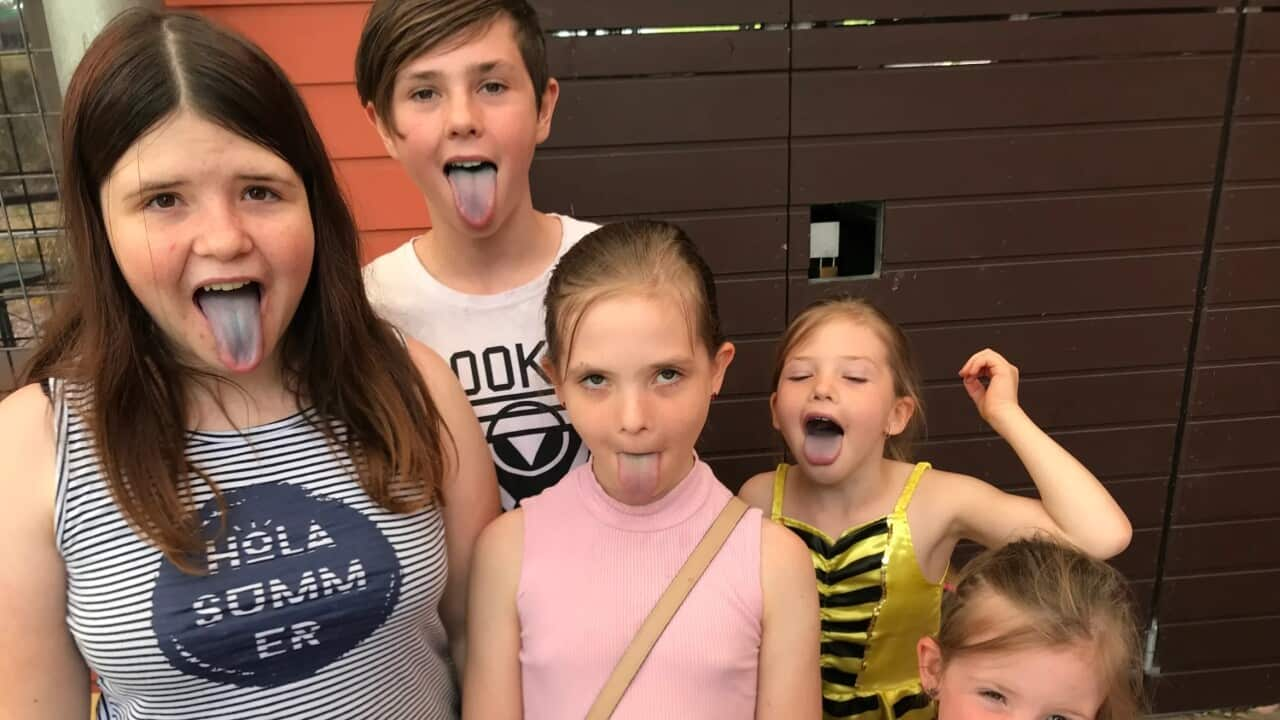Key Points
- Family lives are increasingly displayed online in a term known as ‘sharenting’
- But not everyone agrees with the ethics of the growing phenomenon.
On Insight, parents, kids and experts explore the reasons parents share their kids’ lives online, and what the unintended consequences can be. Watch it from 8:30pm on July 26 on .
When Bruce Devereaux started blogging about his family in 2010, he said it was mostly to share the pitfalls of parenting his seven kids.
“A lot of bloggers were out there doing ‘perfect’ parenting,” he told guest host Marc Fennell on Insight.
“We aren’t that.
“Our stories were very honest, in terms of: what on earth have we got ourselves into?”
Bruce’s son Josh, 17, and daughter Molly, 15, said the blog was an “amazing” record of their lives growing up.
“It’s just a laugh,” Josh said. “It’s good fun.”
Family lives are increasingly displayed online in a term known as ‘sharenting’ – parents sharing photos and details of their kids’ lives on social media. The growing phenomenon has caused a complicated debate.
While parents might want to share their family’s proud or cute moments, not all kids are happy about it. Indi, 12, has put a blanket ban on her mum posting photos of her online.
“I feel uncomfortable with that. People I don’t know, viewing pictures of me without me knowing,” she said.
“I just think it’s weird.”
Toby Dagg, from the eSafety Commissioner, said seemingly benign photos – like a snap of your child’s first day at school – can be used maliciously.
He said it “doesn’t take a lot of inventiveness” for these photos to reveal where your child lives and goes to school.
You don’t want to be showy, you just want to be busy living your life. You don’t need to invite everyone in on it all the time.
Law professor, Jeannie Paterson said Australian children have almost no legal recourse if they’re unhappy with content their parents have shared about them, but overseas it’s a different story.
“The French criminal code says that if people post photographs online without permission, they can be subject to a fine and a year imprisonment,” she explained.
Alexandra Palombi, an Australian photographer living in France, said French culture prioritises privacy.
“The French … won’t put their everyday pictures of their family online, to the wider audience."
“We posted images of our babies … I have been guilty. But I have actually toned that down a fair bit since moving to Europe.
“You don’t want to be showy, you just want to be busy living your life. You don’t need to invite everyone in on it all the time.”










